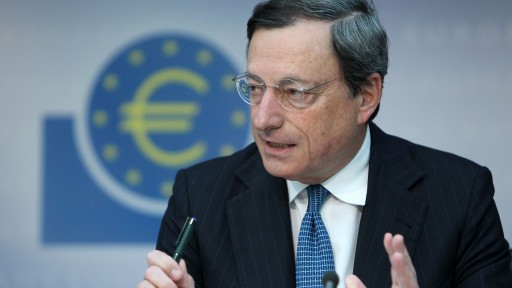- Home
- >
- Market Rumours
- >
- QE in Europe will be even more inefficient than it was in the US

QE in Europe will be even more inefficient than it was in the US

The market is expecting confirmation of a quantitative easing (QE) plan from European Central Bank (ECB) president Mario Draghi very soon.
Indeed, CNBC learned yesterday that the ECB will more than likely base its highly-anticipated sovereign bond buying on the size of contributions made by national central banks. But whatever form it takes, it will almost certainly be the most inefficient bout of QE seen by global markets since the onset of the financial crisis.
The process by which QE (may have) worked in the U.S. saw banks sell bonds in exchange for "cash" held at the Fed paying minimal interest rates.
Essentially, their net interest income (NII) was diluted in return for more profitable core lending. But which euro zone bank, most of which are already struggling for any level of meaningful profitability, is going to sacrifice NII for a negative deposit rate at the ECB when they won't be able to lend the released capital as there is no demand in Europe?
One could argue that monetary easing is needed while painful structural reforms are being carried out. But surely easing should follow reform? Or at least accompany it? Otherwise governments, buoyed by bond-buying, can please voters, ignore fundamental problems, and start spending again.
The way markets have behaved suggests that a firm ECB QE announcement will have a positive effect on European equity markets. That might be the case, but it will be short-lived. It will soon become clear that QE in the euro zone is even more inefficient than it has been elsewhere, and that Europe's growth outlook rests on as yet lacking supply-side reform.
 Varchev Traders
Varchev Traders If you think, we can improve that section,
please comment. Your oppinion is imortant for us.






